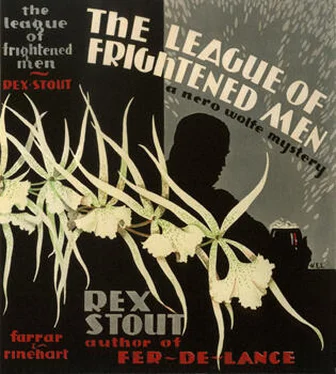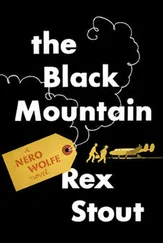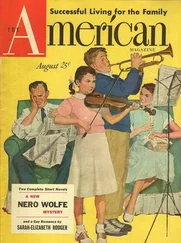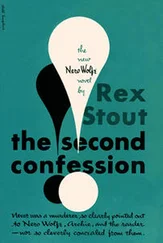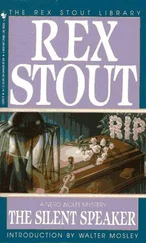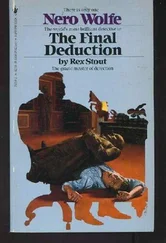After dinner we went to the office. Out of spite and bitterness I started to tell him about all the runs I had scored that afternoon, but he asked me to bring him the atlas and began to look at maps. There were all sorts of toys he was apt to begin playing with when he should have had his mind on business, but the worst of all was the atlas. When he got that out I gave up. I fooled around a while with the plant records and the expense account, then I closed my affairs for the night and went over to his desk to look him over. He was doing China! The atlas was a Gouchard, the finest to be had, and did China more than justice. He had the folded map opened out, and with his pencil in one hand and his magnifying glass in the other, there he was buried in the Orient. Without bothering to say good night to him, for I knew he wouldn’t answer, I picked up his copy of Devil Take the Hindmost and went upstairs to my room, stopping in the kitchen for a pitcher of milk.
After I had got into pajamas and slippers I deposited myself in my most comfortable chair, under the reading lamp, with the milk handy on the little tile-top table, and took a crack at Paul Chapin’s book. I thought it was about time I caught up with Wolfe. I flipped through it, and saw there were quite a few places he had marked — sometimes only a phrase, sometimes a whole sentence, occasionally a long passage of two or three paragraphs. I decided to concentrate on those, and I skipped around and took them at random:
… not by the intensity of his desire, but merely by his inborn impulse to act; to do, disregarding all pale considerations ...
For Alan there was no choice in the matter, for he knew that the fury that spends itself in words is but the mumbling of an idiot, beyond the circumference of reality.
I read a dozen more, yawned, and drank some milk. I went on:
She said, “That’s why I admire you... I don’t like a man too squeamish to butcher his own meat. ”
… and scornful of all the whining eloquence deploring the awful brutalities of war; for the true objection to war is not the blood it soaks into the grass and the thirsty soil, not the bones it crushes, not the flesh it mangles, not the warm nutritious viscera it exposes to the hunger of the innocent birds and beasts. These things have their beauty, to compensate for the fleeting agonies of this man and that man. The trouble with war is that its noble and quivering excitements transcend the capacities of our weakling nervous systems; we are not men enough for it; it properly requires for its sublime sacrifices the blood and bones and flesh of heroes, and what have we to offer? This little coward, that fat sniveler, all these regiments of puny cravens ...
There was a lot of that. I got through it, and went on to the next. Then some more. It got monotonous, and I skipped around. There were some places that looked interesting, some conversations, and a long scene with three girls in an apple orchard, but Wolfe hadn’t done any marking there. Around the middle of the book he had marked nearly a whole chapter which told about a guy croaking two other guys by manicuring them with an axe, with an extended explanation of how psychology entered into it. I thought that was a pretty good job of writing. Later I came across things like this, for instance:
… for what counted was not the worship of violence, but the practice of it. Not the turbulent and complex emotion, but the act. What had killed Art Billings and Curly Stephens? Hate? No. Anger? No. Jealousy, vengefulness, fear, enmity? No, none of these things. They had been killed by an axe, gripped by his fingers and wielded by the muscles of his arm ...
At eleven o’clock I gave up. The milk was all gone, and it didn’t seem likely that I would catch up with where Wolfe thought he was if I sat up all night. I thought I detected a hint here and there that the author of that book was reasonably bloodthirsty, but I had some faint suspicions on that score already. I dropped the book on the table, stretched for a good yawn, went and opened the window and stood there looking down on the street long enough to let the sharp cold air make me feel like blankets and hopped for the hay.
Saturday morning I started out again. It was all stale bread to me, and I suppose I did a rotten job of it; if one of those guys had had some little fact tucked away that might have helped there wasn’t much chance of my prying it loose, the way I was going about it. I kept moving anyhow. I called on Elkus, Lang, Mike Ayers, Adler, Cabot and Pratt. I phoned Wolfe at eleven o’clock and he had nothing to say. I decided to tackle Pitney Scott the taxi-driver. Maybe my wild guess that day had been right; there was a chance that he did know something about Andrew Hibbard. But I couldn’t find him. I called up the office of his cab company, and was told that he wasn’t expected to report in until four o’clock. They told me that his usual cruising radius was from Fourteenth to Fifty-ninth streets, but that he might be anywhere. I went down and looked around Perry Street, but he wasn’t there. At a quarter to one I phoned Wolfe again, expecting to be invited home to lunch, and instead he handed me a hot one. He asked me to grab a bite somewhere and run out to Mineola for him. Ditson had phoned to say that he had a dozen bulbs of a new Miltonia just arrived from England, and had offered to give Wolfe a couple if he would send for them.
The only times I ever really felt like turning Communist were the occasions when, in the middle of a case, Wolfe sent me chasing around after orchids. It made me feel too damn silly. But it wasn’t as bad this time as usual, since the particular job I was on looked like a washout anyhow. It was cold and raw that Saturday afternoon, and kept trying to make out that it was going to snow, but I opened both windows of the roadster and enjoyed the air a lot and the Long Island traffic not at all.
I got back to Thirty-fifth Street around three-thirty, and took the bulbs in the office to show them to Wolfe. He felt them and looked them over carefully, and asked me to take them upstairs to Horstmann and tell him not to snip the roots. I went up, and came back down to the office, intending to stop only a minute to enter the bulbs in the record book and then beat it again to get Pitney Scott. But Wolfe, from his chair, said:
“Archie.”
I knew from the tone it was the start of a speech, so I settled back. He went on:
“Now and then I receive the impression that you suspect me of neglecting this or that detail of our business. Ordinarily you are wrong, which is as it should be. In the labyrinth of any problem that confronts us, we must select the most promising paths; if we attempt to follow all at once we shall arrive nowhere. In any art — and I am an artist or nothing — one of the deepest secrets of excellence is a discerning elimination. Of course that is a truism.”
“Yes, sir.”
“Yes. Take the art of writing. I am, let us say, describing the actions of my hero rushing to greet his beloved, who has just entered the forest. He sprang up from the log on which he had been sitting, with his left foot forward; as he did so, one leg of his trousers fell properly into place but the other remained hitched up at the knee. He began running towards her, first his right foot, then his left, then his right again, then left, right, left, right, left, right ... As you see, some of that can surely be left out — indeed, must be, if he is to accomplish his welcoming embrace in the same chapter. So the artist must leave out vastly more than he puts in, and one of his chief cares is to leave out nothing vital to his work.”
“Yes, sir.”
“You follow me. I assure you that the necessity I have just described is my constant concern when we are engaged in an enterprise. When you suspect me of neglect you are in a sense justified, for I do ignore great quantities of facts and impingements which might seem to another intelligence — let it go without characterization — to be of importance to our undertaking. But I should consider myself an inferior workman if I ignored a fact which the event proved actually to have significance. That is why I wish to make this apology to myself, thus publicly, in your hearing.”
Читать дальше
